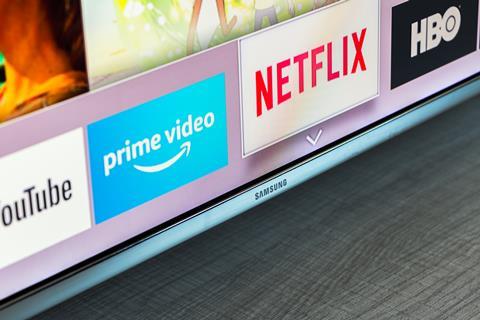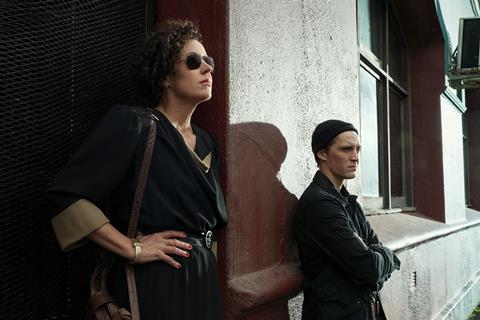Despite the dominance of Netflix and Amazon, the OTT market has room for all sorts of niche players, with new services emerging to cater for specialised audiences.

The emergence of global video providers, notably Netflix, Amazon Prime Video and YouTube, has caused fundamental shifts in viewing habits across the world.
The USA now has an average of 1.7 subscriptions per SVoD household while the UK is close behind, with 1.5 subscriptions per SVoD home. In the UK alone, Ofcom says that half of UK households now subscribe to at least one subscription video-on-demand (SVoD) service, usually Netflix or Amazon Prime.
One might be forgiven for thinking that the dominance of these global services has made competition difficult for any rival platforms.
- Read more: How to join the SVOD party
If anything, however, they have acted as battering ram, helping to prise open the VoD market and make viewing of OTT content accepted by consumers. It’s a market that a flood of big rival global services - from the likes of Apple, Warner Bros and Disney - will look to exploit when they launch in the next 12 months.
It’s also a market that is much more complex and varied than first meets the eye.
Traditional broadcasters, for example, have long enjoyed VoD success in many markets, despite competition from Netflix and Amazon. For example, broadcaster catch-up services (BVODs) are widely used across Europe. In the UK, according to Ampere Analysis figures, each of BBC iPlayer (60%), ITV Hub (40%) and All4 (25%) is used by over a quarter of the population each month – while in Germany the largest catch-up services come from both ARD (23.6%) and ZDF (28.3%); and in France come from TF1 (25.3%) and M6 (18.8%).
Companies such as Sky, Discovery, HBO, Showtime and Starz are all examples of channel groups and premium TV programmers that have extended their portfolios to include premium VoD services. So too is Scandinavia’s Nordic Entertainment Group, whose SVOD service Viaplay has over 1.4m subscribers and has heavily invested in content in recent times, with five new Viaplay originals debuting in the second quarter of 2019 and a further six new shows in production.
The OTT market also varies greatly depending on geography. In China, for example, three major SVoD services have emerged since 2012 amidst fierce competition: iQIYI (backed by Baidu), Youku-Tudou (backed by Alibaba), and Tencent Video (backed by Tencent). South East Asia, meanwhile, has regional SVoD players such as iFlix
The OTT market also differs heavily in terms of business model, ranging from subscription video on demand (SVoD) services such as Netflix through to ad-based video on demand (AVoD) like YouTube, Pluto and All4.
- Read more: OTT: Challenges and opportunities
Finally, it’s also a market that has room for all sorts of niche players, where new services have emerged to cater for specialised audiences.
In the UK, for example, there are a multitude of other video services, centred around movies and TV (BFI Player, Curzon Home Cinema, Mubi, Starz Play) and sports (NBA League Pass, NFL League Pass, Eurosport Player), all of which are used by under 1% of homes, according to Ampere figures.
One niche service which has successfully established itself in markets such as the UK, US, Australia, Italy and Belgium is international drama channel Walter Presents. Its co-founder Walter Iuzzolino says the big platforms, Netflix and Amazon, have fostered the streaming habit with millions of customers around the world – carving out a path for more specific services like Walter Presents to tread along.
“There is something very powerful about teaming up with a local player who understands the market, and has a very strong connection to their consumers.” Walter Iuzzolino, Walter Presents
He says Walter Presents has little problem acquiring top international dramas, even though Netflix and Amazon are increasingly showcasing local and foreign language shows.
The big streamers, he explains, are producing more of their own local language shows. To compete, national broadcasters have raised their game, creating more and better quality content – much of which is available on the international market. “I’ve found, if anything, that more titles are available,” says Iuzzolino.

Iuzzolino says Walter Presents has broken into new markets by partnering with local broadcasters, whether Channel 4 in the UK or PBS in the US. “There is something very powerful about teaming up with a local player who understands the market, and has a very strong connection to their consumers.”
He also says the decision to launch as a mainstream AVoD service, rather than a niche pay offering, has been crucial to its success. Relying on ad funding means Walter Presents has to be broader in its appeal. “We wanted to be inclusive, commercial and mainstream – not elitist and overly intellectual,” says Iuzzolino.
“It’s really, really important that you have a very clear mission if you are going to win in this space.” Nick Walters, Hopster
Another service to have carved out a strong niche for itself is kids SVoD app Hopster, which has grown well beyond the reach of its own app. Hundreds of its episodes are also now available through Scottish pubcaster STV in a branded children’s area of the STV Player VoD app, as well as on Comcast’s Xfinity X1 service and OTT streamer Sling TV in the US.
“It’s really, really important that you have a very clear mission if you are going to win in this space. We are all about helping kids learn through the stories they love,” said founder Nick Walters, speaking at June’s Variety European TV Summit. “We don’t have to be in the business of having to outbid Netflix or really big players for the big brands. We are about curating, developing and creating very specific content which drives our mission. Some of our best shows are craft shows, or hidden gems from international markets.”
In documentaries, meanwhile, services such as Curiosity Stream SVoD offers science, technology, history, and educational documentaries, while Docsville (formerly Yaddo) focuses on character -centric and world cinema indie documentaries. The former was launched by John S. Hendricks, founder of the Discovery Channel, while the latter was set up by former BBC Storyville boss Nick Fraser. LoveNature, meanwhile, is 100% centred around nature docs.
“Even within a niche, you can have services aimed at different sub-niches,” says Wendy Bernfeld, founder of content strategy and licencing consultancy Rights Stuff.

Bernfeld is chairing a session at next month’s IBC Show, ‘Competing in OTT: Beyond the Big Brands’, which has speakers from SVOD platform Trace Play, which focuses on Afro urban culture; kids service Hopster; as well as telco player Orange Content,; and superindie group All3Media which also speaks about its partnership with niche OTT specialist TV 4Entertainment.
- Read more: OTT’s temptations are firmly in IBC’s sights
“Even within a niche, you can have services aimed at different sub-niches,” Wendy Bernfeld, Rights Stuff
Bernfeld describes a landscape where major OTT players are positioning themselves as alternatives or competitors to traditional and pay-TV, while niche OTTs are counter positioning against bigger OTT services to offer more specialist thematic content.
She says it’s generally dangerous for these niche players to try to compete head on with the main players who have deep pockets for volume content acquisition and are also investing in original content. “Rather, if you are niche, you should deep dive into the niche because a mainstream generalist player isn’t going to be able to offer enough of that kind of content to fans of that niche.”
“I do think that SVoDs begin best by having a theme and modest library for low retail price, and then gradually they can start to expand and refresh, either by adding an extra layer like AVoD or TVoD [transactional video on demand], or a marketing element, like selective original production.”
All along, it’s important to keep an eye on quality curation for the tastes of your audience, she adds, stressing that one can distinguish one’s programming service without the immediate need to invest in original production – and noting that a lot of fledgling SVODs have gone out of business by over-reaching themselves in their determination to copy or compete with rivals.
In the world of niche OTT, it seems, persistent, consistent, and diligent progress, perfecting as you go, will produce better results than rushing to expand.
Interested in OTT? Find out more in the Competing in OTT - Beyond the big brands session at IBC2019.
-
IBC2019 takes place 13-17 September at the RAI, Amsterdam
























No comments yet